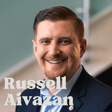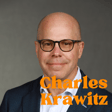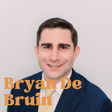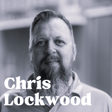Become a Creator today!Start creating today - Share your story with the world!
Start for free
00:00:00
00:00:01

Sharon Vornholt: REI Investor and Marketing & Branding Coach
Hi! I’m Sharon.
I started my investing journey in 1998 while I owned and operated another successful business. Real estate was originally my side hustle. I invested part-time for about 10 years doing rehabs and picking up a handful of rentals before finally becoming a full-time investor. In 2008 when the market crashed, I became an "accidental wholesaler". (That was never my plan.)
Today, I help real estate investors create unforgettable brands and marketing plans that work!
I also help people become an expert in one of the most lucrative niches on the planet: probate investing. I have been the leading probate investing expert for more than a decade, and I can make you an expert too.
Be sure to check out the Louisville Gals Real Estate Blog, my course Probate Investing Simplified, and my own podcast called "Let's Talk Real Estate Investing with Sharon Vornholt."
https://louisvillegalsrealestateblog.com
Transcript
00:00:00
Speaker
BAM!
Sharon's Entrepreneurial Journey
00:00:27
Speaker
Sharon Fornhold was born and raised in Louisville, Kentucky, where she has since built a fabulous career for herself as a full-time wholesaler, personal branding and marketing expert, coach, and educator.
00:00:39
Speaker
Like her parents, Sharon has always been a staunch entrepreneur. So after several years of working in the field of medical administration, she started her own home inspection company and slowly started to dip her toe into the world of real estate investing by way of consistently attending local RIA meetings and completing many a rehab. In this episode, Sharon discusses how she built her portfolio, expertise and reputation over the years.
00:01:03
Speaker
as well as tips she has for young entrepreneurs to really present themselves positively to potential mentors, clients, and business partners. She talks in depth about the power of selling one's services as an investor, about her tried and true approaches to direct meal marketing, and about how to leverage your experiences as an entrepreneur in order to become known as a true field authority. Enjoy the episode. Gotcha.
00:01:31
Speaker
Well, so the first questions I actually want to ask you, you're so active in Louisville, Kentucky. Are you a native? Did you grow up there? I did. Okay. Did you end up going to school in the region? I know you started out working as a manager in an OBGYN practice. I did. I worked in the medical field for a number of years. I had worked in the field before then, and then I opened a home inspection company. Sure.
Challenges in Home Inspection Business
00:01:58
Speaker
and did that for 17 years while I invested for 10 years. Don't ever get into that. That business is miserable. Why? Well, because somebody's always unhappy. The homeowner is unhappy that you found their furnace doesn't work, or the realtor's unhappy that you found that the furnace doesn't work. That sort of thing. We would say, well, look, the condition of the house is the condition of the house. We didn't make the condition of the house.
00:02:26
Speaker
And so you grew that home inspection company to be one of the biggest in Louisville. How did you make that switch from the medical field over into doing that? Like I know your dad was a contractor, both your parents are very entrepreneurial. Why that industry?
00:02:43
Speaker
I just was looking to start a business once I decided, you know, I managed the practice for a number of years and then I had really as much, you know, it was I was just looking for something different and my dad's construction background. I just kind of start look was looking for businesses that I could grow from a small business to a big business.
00:03:06
Speaker
And so I don't know exactly how I found that, but I did a lot of research and looked at a lot of different things. And the fact that it was real estate related, so real estate construction, all of that came into play.
00:03:21
Speaker
you know, during that time.
Breaking Into the Industry: Standing Out
00:03:24
Speaker
But it was just really, I don't know, I look back on it and sometimes I ask myself, how did I exactly settle on that? But it was a family business and we just went down that path.
00:03:37
Speaker
Okay, so was where your parents involved then with the home inspections? Oh, no, they were gone, but they were passed on a long time ago. So it was my it was my daughter worked in the business. And so we just grew that business who is where we learned how to market well, because I like to tell people this, you won't relate to this, but it was bi before the internet, when you actually had to go out and talk to people,
00:04:02
Speaker
and be in their be in offices and do creative marketing things to get noticed because it was still that was a man's business. There were no women in this business and until women started disrupting that business. But we were
00:04:23
Speaker
Oftentimes, men, whether they were real estate investors or whether they were home inspectors, they were very much in the work boots and the construction side. They didn't put on a suit or dress up and go out and do marketing. So it was really pretty easy to stand out during that time because we were different.
00:04:45
Speaker
One of my favorite podcasts I ever did, I guess I had on my show, was Mike Michalowicz. He's written many books, but one of them was his newest book, which we talked about, was called Get Different, Marketing That Can't Be Ignored. He's written Profit First, The Pumpkin Plan, Clockwork, all businesses are all books for entrepreneurs.
00:05:07
Speaker
But we were always different and that's one thing that i think people can excel at with marketing is just being different. Well marketing is all about selling a product right at the end of the day or service so i'm wondering you jumped into home inspections without necessarily having a personal background in that industry yourself did you hire a bunch of home inspectors and oversee them for a number of years.
Hiring and Communication in Home Inspection
00:05:32
Speaker
Oh, yes. We were never crawling under anyone's house. I was just the business owner. We had hired inspectors, which was always a challenge, too, because getting someone that was both competent from the construction side, from the knowing the codes, even though we didn't do a code compliant inspection, knowing someone that knew that, because you did have to know it to know if it was right or wrong, if something was installed incorrectly.
00:06:02
Speaker
Finding that person who could then also have good communication skills with agents. It was a really hard, you know, agents and home buyers. It was a really hard recipe and that usually looked like an entrepreneur, someone that was going to eventually be your competition. So that was a challenging aspect of that business. But no, we went to, my daughter and I, we did all the trainings. We knew
00:06:29
Speaker
We knew from a book level and a knowledge level how everything worked, how it should all be, but no, we never did any inspections. Okay. Got it. And I'm assuming you guys weren't rehabbing at that point.
00:06:44
Speaker
No, no, it was not. So that was about eight years into that business.
Discovering Real Estate Investing
00:06:50
Speaker
I had a realtor walk into my office, an agent walked in and she said, Hey, do you want to go to a real real meeting? And I said something like, what's a real meeting? Because I only knew that you could be involved in real estate if you were a licensed real estate agent or broker.
00:07:09
Speaker
I had no idea that there was another side to real estate. When I went to that meeting, I just went forever for 25 years. It was like a world opened up to me. I invested part-time for 10 years as long as I had that business open. Then in 2008,
00:07:35
Speaker
Well, we all know what happened in 2008. It was the best of times and the worst of times. It was the perfect time to transition over to real estate full time.
00:07:44
Speaker
But I had to change my business model because virtually no one could get a retail mortgage. So to have properties to rehab, you were going to have to hold those properties. And you were going to have to rehab them and then hold them for who knows how long until that whole thing settled out. So that was when I started wholesaling. I just turned on a dime and started wholesaling.
00:08:14
Speaker
What were you initially doing when you started your investing journey? If it wasn't wholesaling, just buying homes? I was rehabbing a couple, and then I would rehab a couple, and then get a buy and hold. And the other business was still very intense. It was still very time consuming. So I'd like to say we were just kind of limping along with that strategy. But it was a very good strategy, because if you still have a W-2 job, you can borrow money.
00:08:44
Speaker
So I don't think anyone should quit their job and start investing. That should not be your first plan. Great. It's too risky. Do you remember at the time when you started going to these REA meetings and were still employed at this W-2, what it was about real estate that really appealed to you? Was it this notion of building a cushion for you to eventually quit your job and do investing full time? Or what about it was so enticing?
00:09:13
Speaker
Well, in the beginning, of course, I wanted to learn the business. That was to stay in it. That was it. But long term, yes, I wanted to do real estate investing full time. And I wanted to have more freedom. The business I was in was every day they did inspections. And the very next day, those reports had to be delivered. So it was a very time intensive job where you never
00:09:39
Speaker
The only time you had a break was if you just didn't schedule anything. It's kind of like being in nursing or something. It's just that kind of a job. So I wanted the freedom, and I always was just an avid learner, and I still am. So I love the fact that you could have so many strategies with real estate. There were so many ways you could make money in real estate.
00:10:07
Speaker
A lot of it depended, too, on what were your skills and what was your status with regards to your financial situation. As I said, if anyone is thinking of quitting their job to become a real estate investor, like I said, don't do that because you cannot borrow money.
Creative Finance and Wholesaling
00:10:27
Speaker
You cannot borrow money for rehabs if that's your strategy. Then you have to, or even as you can probably
00:10:36
Speaker
Maybe get some buying holds if you can get hard money to buy the properties then you can refi out but that's even gets tricky if you don't have either a portfolio of properties if you can't show income in some manner that gets really tricky. Okay so as much of an advocate of creative marketing as you are creative financing then isn't really something that you're crazy about i'm guessing.
00:11:02
Speaker
No, I think you need to know for creative financing, but I think there's a place for everything. There's a place for private money lenders. If you find a great deal and you need to use hard money, there's nothing wrong with that to get in a deal.
00:11:17
Speaker
At the time I was doing this, it was easy to get commercial bank financing with no money down. So long as you had a deal that was good enough and the equity would be there, it was really pretty easy to get money for these deals. You could go in every six months, take your tax return and see we're back to the W-2 income. And then they would say, okay, if she buys a couple of properties and they cash flow, then she's good to go.
00:11:46
Speaker
Now things have changed somewhat with regards to that, but I do think everybody should know creative finance strategies. You should know seller financing, you should know subject to, I bought some property subject to the existing mortgage.
00:12:02
Speaker
Uh, because at the end of the day, real estate investors are problem solvers and it's how you can best solve their problem. And there's no really cookie cutter solution unless you always just want to be giving cash out to whatever they're asking prices, which is not what we do. Okay. Understood. So take me back to when you became an accidental wholesaler and started your journey of full-time investing.
00:12:30
Speaker
What did that look like, and how did you start that business? What were the steps that you took to really gain a clientele and income? Honestly, I just did what I was always doing, which was direct-to-mail marketing. I did direct-to-mail marketing. I networked at the real estate investor meetings, the RIA meetings. But at its core, I've always been a direct-to-mail marketer. So when you're doing that,
00:12:55
Speaker
generating leads, then it just becomes a question of what are you going to do with the lead. So since I had been in the business by that time, about eight years, 10 years, somewhere around 2008, yeah, 10 years at that time,
00:13:10
Speaker
I knew a lot of investors and these same investors that had careers like a big companies like Ford and GE They had careers, but they were also very active investors rehabbers They I just simply called them up and said hey I've got these properties and I don't want to rehab them. Would you be interested in buying them? They said are you kidding? Sure because guess what they didn't have time for marketing, right? So for me, it was an easy transition
00:13:40
Speaker
I knew how to buy the properties at the number they needed to be able to buy them from me, and then I had to get them a little bit cheaper, you know, so that I could add on my wholesale fee. But I knew how to do that. So for me, it was an easy transition. But I don't necessarily think wholesaling is easy when you're starting out.
00:14:06
Speaker
How did you get into direct to mail marketing? I mean, did you have like a mentor at the time? Did you read something? Where did that instinct come from? Well, we did it with a home inspection company and they, uh, they said, this is what you do. You send letters that go back and pretend there's no internet. There's no email. There's no, none of that. You have to either see them all in person, which is not scalable all the time, or you have to send direct to mail and, uh,
00:14:33
Speaker
We learned just the very basics of direct mail marketing and then tweaked that over the years. But Julie, I can tell you this for off market deals, direct mail marketing still works great for off market
Exploring Probate Leads
00:14:48
Speaker
properties. Your favorite niche within which is probate leads. How do you get into that? I mean, was it just one of a few different like profiles for potential sellers that you were
00:15:02
Speaker
testing things out with and hit gold. It was accidental. I didn't know about probates until 2008. And then I started coming across this information about properties in probate. And once again, there was not a lot of information available. There was no one in my area working probates. When I say there was no competition, I mean, there was zero competition. And by that time, I had had the blog for about eight years.
00:15:32
Speaker
And I started to talk about it and people, you know, how information by that time traveled widely because of the internet. So.
00:15:41
Speaker
Today, there is still so much less competition for probates, but I found them accidentally. There was really no information. There were no, here's how you do it. There was nothing. So I developed that, learned about it myself. And then I started teaching others, you know, this is how you do it. And just a lot of my listeners are like graduating high school. They're in college or just about to finish.
00:16:10
Speaker
What are probates if you had to describe this whole process and people in that situation? Probate is something that happens in the court system and it comes about when someone passes away and they have property. If they may have a will where they would have appointed an executor, it might be their spouse, it might be their child. If they don't have a will, then the court appoints someone called the administrator.
00:16:35
Speaker
But in almost every case, unless they've done some sort of estate planning, the family or the legal representative, if they know they're the legal representative will go to court and they submit paperwork and they open the estate from there.
00:16:51
Speaker
They do everything they have to do behind the scenes. But once they say, okay, Julia is the executor, she's the decision maker. That is the person that can legally sell the house that previously belonged to the deceased. So that's how it all, that's how it all works. And know that one of the reasons it's so valuable is because they have to sell the house.
00:17:15
Speaker
If it's not been willed to somebody like a spouse or a child, or it's been put in a trust maybe so it would escape probate, most properties will end up in probate. And every single month, it's just a cycle of life. There are more properties. This month, there are properties. The next month, there are properties. The month after that, there are properties.
00:17:41
Speaker
I think if you understand the process, it is a great niche to be in. It's very profitable. And you have little competition compared to other niches.
Starting Young in Real Estate
00:17:53
Speaker
And you mentioned something about being in school, in college. I'm going to Chicago in a few weeks for a conference. And there's a young fellow up there, just turned 14. His name is Jacob. He has four rental properties.
00:18:09
Speaker
His parents are real estate investors. They also own a construction company. And so you're never too young to start if you have the right mentors. Just know that. Your parents will have to sign the contract, though, because you're not a team. So on that note, how do you recommend that young people?
00:18:28
Speaker
Reach out to qualified investors because I mean, I'm sure that in your own life you have so little time to be Entertaining people who seriousness you can't really gauge right? I mean have you in your life attempted to mentor people within your community like whether at the RIA or Via individual outreach. Is that something that you personally are interested in doing?
00:18:50
Speaker
I have done that before, but you mentioned to gauge their level of interest. Now, I think people can waste a lot of time in this. Well, just let me hang out with you and show me everything you know for the next year. And then now I don't like that. Right. So I would say.
00:19:07
Speaker
You need to show the interest first. We have young people that come to our RIA meeting. When I go to this conference in Chicago, people will bring their children. Now they are certain children that will like it and certain children that won't. But for some of these kids, they're very entrepreneurial. They're very smart.
00:19:27
Speaker
And they might be teenagers, they might also be 12 like Jacob was when he bought his first property. He just knew he was never going to work for someone. He was going to have an empire of property. But those people are few and far between. But I will say this, if they have been listening to podcasts,
00:19:49
Speaker
You can listen to podcasts. You can watch YouTube videos. Whatever suits you, you can go to a REA meeting. You don't have to be 18 to walk in the door. You can always find someone, if you know an investor, that would let you tag along. But show some interest. Show that you're willing to learn some on your own and get some basic knowledge, and then someone will take you seriously. Yeah.
00:20:16
Speaker
Well, and Sharon, you are such an example of how growing up as an entrepreneurial kid and within an environment where you are shown by your parents how to start things for passive income and general fulfillment can translate very much into your adult life. Do you recommend, like when it came to your own daughters going into real estate, that people who are interested in doing this go to college? Is that necessary? Did you go to school yourself?
00:20:43
Speaker
It's not necessary to succeed in real estate, but I don't ever personally think college is wasted. Now, what I would say is that here in Louisville, as part of the University of Louisville, we have a UofL School of Entrepreneurship.
00:20:59
Speaker
If someone knows that they want to be an entrepreneur, I would say skip all the philosophy classes and go straight over there. You know, niche down and learn the things you need to run a business. We didn't know that. We were not taught any of that stuff, how to run a business, accounting for business. When I found myself in the position of
00:21:24
Speaker
managing a medical practice, I asked the doctors, they do nothing about accounting. They were doctors. I said, I want to go to over here and take a class on accounting for non-accountants. I wanted to understand the business side of accounting better. I knew accounting, I knew how to balance a checkbook, I knew those sorts of things. But I wanted to know, how do you do this within the realm of a business? I took a class.
00:21:53
Speaker
And then I understood, and then I could have an intelligent conversation with the accountant if I had a question. So I think your level of knowledge leads you to be able to speak someone else's language and ask them intelligent questions, which is the thing I say about probates. If you understand the process,
00:22:14
Speaker
you understand a little bit about the terminology you understand their mindset and yours which is not always in alignment then you can talk to these people when they are confused and they don't know they don't know what's going on then you can position yourself as the expert because you have learned it.
00:22:33
Speaker
But back to the college thing, I really, truly, my girls, I have two daughters, they both went to college. They're both involved in real estate in some way. They're both property managers, but one is very much, she likes the security of a job. She manages a big property.
00:22:50
Speaker
She does very well. My other daughter works for an investor that has millions of dollars worth of property. He has single-family homes, mixed-use commercial apartments, restaurants, all of it. She is an entrepreneur at heart, so they're two very different people, and there's no right or wrong way
00:23:09
Speaker
To do this you can you can say i wanted to job but i'd like to i run a house each year so that when i retire i have a portfolio of properties that's okay too so you have to if you're going to be happy you have to really look at what is it that you want and now.
00:23:28
Speaker
and figure that out because truly today, it used to be that college was the only path. Now, that's not necessarily true. And I will say this, when I look at the investors that I talked to that come on my podcast, a lot of them are from an engineering or a financial background. A lot of them never went to college and they just
00:23:50
Speaker
jumped in and they are equally as successful. I will say this, the ones with the financial background and with the engine, the engineering thought process helps you with the steps like in a rehab. It helps you to set up systems and processes and things like that.
Building a Personal Brand and Network
00:24:07
Speaker
So I don't think any education personally is ever wasted. I don't think it's a prerequisite for success in real estate. Sure.
00:24:17
Speaker
When it comes to going to REAs though, like you started doing, did you feel comfortable kind of assaulting people with questions about what they're doing before you actually started rehabbing yourself? Or do you think there's something to be said for actually starting to gain a real world education yourself and then asking people what it is that they're doing? No, I think you should go and you should immerse yourself in the REA.
00:24:45
Speaker
Don't go from an, just an ask perspective. So let's say if you are brand new, Julia, and I always talk about this in the vein of building your brand. So your brand is what people think about you. It's not really just about colors and fonts and all of that, but it's the impression you leave people with. So let's say that you are a brand new investor you've never done.
00:25:09
Speaker
Any deals, you really have no clue what you're doing there. Will you find a person that you can go up to and you say, Hey, I'm Julia. I'm brand spanking new. Tell me what you do. Tell me about your business and then let them talk. And then at the end of that conversation, say you're very glad to meet them. And, um, is there some way you could assist them? So what you've just done is you've turned it around that you are open to being mentored without ever asking to be mentored.
00:25:39
Speaker
Another way that you can find a mentor in your RIA group is, again, by getting known, sign up for the jobs that people don't want. Like in my RIA, it's checking people in at the door. We have several hundred people that come through the door. The buffet opens over here. They can smell the food, and there they are at the table signing people in with their name tag on. But guess who knows them? Everybody knows them.
00:26:06
Speaker
So when they need to talk about a deal or find a deal or sell a deal,
00:26:12
Speaker
when they walk up to that podium, everybody knows them. So go with a, networking is probably the most underrated form of marketing that you can do. Like go with a purpose and always lead with tell me what you do. So you ask them about what they do. And that's how you'll find your mentor. And that's how you'll also find out who the movers and shakers are in your RIA group.
00:26:37
Speaker
You've been exposed to just a plethora of successful investors and you are, of course, one yourself. What are elements in common with the personal brands of your own personal brands and all these people that you've spoken to that you can comment on for young people? Like maybe traits that they should work on developing within themselves or maybe aspects of their external presentation that are important to cultivate if they're looking to really make a good impression and come across as trustworthy and genuinely eager.
00:27:08
Speaker
You should always do what you say you're going to do. And if you find yourself unable to do what you say you're going to do, then call up the person and say, look, I've hit a glitch. Everybody understands I've had a glitch. You know, I've had a problem, but I'm going to fix this. So number one is show up on time for things, show up and then show up.
00:27:33
Speaker
looking like you should. Don't come in there looking like you just rolled around in a bunch of drywall dust, which you might have. Change clothes. And I'm not telling you to dress up and be someone you're not. It's fun to show up in your jeans and all of that stuff. Investors are pretty much a jeans crowd. But show up like you're put together and then
00:27:58
Speaker
Uh, be a good listener. This is probably one of the hardest skills for most people to cultivate. And that is to not interrupt people when they're talking, to listen to what they say and let them finish and then give a pause and
00:28:13
Speaker
then answer or give your response. But work on yourself would be the first thing I would say. And once you can show up as a person that is trustworthy, this is about your brand, you want to be the person they trust, that they know, that they like, because it's all about the know, like, and trust factor within real estate.
00:28:36
Speaker
So just work on being the best you that you can and figure out how you can help other people and how can you help in your group? What do they need somebody to do? And then people will start to notice you and you'll notice that things just start to happen. Yeah. How did you become a coach? Because I'm assuming that you're demonstrating all of these personality traits and um,
00:29:00
Speaker
getting people to like know and trust you enough that they're actually coming to you for advice on how to better their marketing strategies and their businesses overall. So did you have like maybe one or two initial friends that became clients or did you jump straight into the pool of offering the service to investors? I was a long time in this business before I ever started coaching. I did what I call it sideline coaching, help people one on one. They would call me with questions and um,
00:29:30
Speaker
I wrote about 150 articles for Bigger Pockets and I had people calling me a lot. And I finally had to figure out a way to get a grip on on that because you simply run out of time. And at that point, I decided to offer some programs and I started doing different things with, you know, coaching and
00:29:55
Speaker
I had a couple of group programs. They weren't really expensive, but I wanted people to commit. Here's the thing. You can only go so far with free because people don't always value free. They don't, they'll come and they'll listen. But if you say, I want you to do these three things, or one time I said to someone, I want you to make one video, one, and then come back in two weeks. We're going to working on branding and marketing. They didn't value it because they didn't pay for it. They,
00:30:24
Speaker
They, they would not follow through. So most people that I know that coached, they didn't start out to be a coach. It just became a necessary part of their business, unless they got rid of their phone number. It was, I mean, I'm sure there are some people that decide that, but
00:30:45
Speaker
The other thing coaches don't do is they don't start out coaching to make with the thought, I'm going to make a lot of money. Most people don't. You start out with the idea that you're going to help people. And then if you're good at what you do, and you create programs that are valuable, then that will come. But you pretty much like anything else have to prove your worth. Yeah. Before people are willing to spend money on you. And that's the way it should be. Absolutely.
00:31:12
Speaker
Yeah, you are again selling a product like that is the whole moving mechanism behind marketing, right? If you sell a bad product, there is going to come back. Nobody's going to come back and you should always try to over deliver. Right.
00:31:27
Speaker
Now, Sharon, would you classify yourself as being a natural extrovert, a natural teacher, or did you really have to work on cultivating those things?
From Introvert to Public Speaker
00:31:37
Speaker
No, I was pretty much an introvert. Somebody once said, you know that commercial where it was like a financial thing and the whole room is buzzing, and then somebody stands up to say something. The person that never stands up to say anything in the whole room got quiet. I don't remember what that was. No, I was actually pretty,
00:31:56
Speaker
kind of well introverted. It was really quite funny to me one day when I was looking
00:32:04
Speaker
I had a house and I was showing it to someone and the neighbor came out and I just asked the neighbor, porch to porch, hey, is this a quiet neighborhood? What can you tell me? To me, it was a normal conversation by that point. And the man that was there to look at the house said, boy, you can just talk to anybody, can't you? And I'm thinking, what? No, maybe I can today. I don't know. But no, I was not.
00:32:28
Speaker
I was not naturally extroverted, and I did a lot of things that were really uncomfortable along the way. The podcast, we talked a little bit about doing video. I was not comfortable on video. The first video I ever made for someone, they wanted a short 15-minute me to send them a training video.
00:32:50
Speaker
for their website and it took me like two days to make that video. I finally just said, forget it, what it is, what it is. But it's taking these baby steps. If you're not being in the uncomfortable zone all the time, then you're not growing. And you just look up one day and you can, you remember the person that you used to be. But it takes, for some of us that we're not extroverts, it takes a hot minute to get to the other side.
00:33:20
Speaker
So aside from pushing yourself in those comfortable situations, do you remember any particular person? I hesitate even to call them a mentor, but maybe an inspiration that you were able to really learn a lot of tips from when it came to putting yourself out there more.
00:33:35
Speaker
I've just always been a consummate learner and for those of you that think you might not want to invest in a coach, know that every big coach on the planet has a coach. Everybody has coaches because coaching is what allows you to get to your next step faster.
00:33:57
Speaker
I do believe that in the beginning, you should start out with blogs and podcasts and articles and urea meetings and things like that. But if you want to grow, you should very quickly figure out how to come up with the money to hire a coach. And not all coaches are terribly expensive. You'll find mentors along the way, and there will be mentorship opportunities to do group things, which won't be horribly expensive.
00:34:22
Speaker
But if you're going to build a business within real estate, there's so much that we all don't know. And you can, you can find these mentors, you can find these coaches. And there, I wish I could tell you there was one, but there's not, because I'm always looking for the next person. Like if you're moving from real estate into coaching, then that person you need to become the next best step is not probably going to be a real estate investor.
00:34:50
Speaker
If you have a product, you're going to be looking to somebody successful that launches, let's say, if you want to launch a digital product, then you're going to be looking down the road at somebody like Jeff Walker, who, you know, you're always looking for the best of the best. And in what manner can I learn from them?
00:35:10
Speaker
What is your take, I'm not even sure if you have an opinion on this really, but of the sort of guru mentor phenomenon that we're seeing more and more on YouTube and Instagram, like people who cast themselves sort of as an influencer coach where they don't have much of a background to themselves and their careers. I know a lot of young people too tend to think that getting to a place where you are is a lot easier than it is. So I don't know if you can touch on that.
Choosing the Right Coach and Maintaining Integrity
00:35:39
Speaker
It's a bad idea to put yourself out there as something that you're not because the people that are what you're portraying yourself to be, they'll spot you in a hot minute. It's, it's, it's like any industry where people, I mean, I knew someone, I knew of someone who was, had a lawn business. And then I looked up one week and he's putting himself out there as a real estate coach.
00:36:03
Speaker
to the $25,000. And it just made me sick to my stomach. And know that these people always get found out. They always get found out. And people that are, that coach other people, we don't like it at all. We, it's, they take advantage of a lot of people. And so you should do your homework before you ever hire a coach or
00:36:31
Speaker
pay anybody any money. You should interview them like you're interviewing someone to come to work for you, or a doctor. Would you go to someone that you didn't know anything about to do a big, tough surgery on you? No. No. So you should look at these people. There's nothing wrong with talking to people. And I talk to people all the time. And it's not only about do they know
00:36:56
Speaker
The number one is, are they real? Do they have the experience to teach me what I want to learn? And you only have to be, for someone just starting out in real estate, somebody that's been in the business four or five years has a vast amount of knowledge and experience that the beginner doesn't have. Now, somebody that's been in there 15 or 20 years, they're not really going to probably go back to someone that's been in the business five years. So it's all relative. And I don't think you have to jump from
00:37:25
Speaker
the beginner to the top tier person, that's not a right move for anyone. But I talk to people all the time, and you have to make sure that you're going to be a fit also. Do you all have the same beliefs? We're talking about belief systems now. Are, are you going to be true to what you, who you are and what you know?
00:37:49
Speaker
And I want to know if I'm going to work with someone, I've actually fired people before one person in particular, I just can't work with you because you're, you're not doing things according to the law. And he said, but I'm just found a workaround. I said, no, you're breaking the law.
00:38:08
Speaker
And I can't be part of that. So you can, I wish you all the best, but you, I would say never compromise your values. I never come to what you know is right because that one will come back to bite you in the, in the bud every time. Sure. Do you remember? So I asked you previously if you were like always extroverted and you know, you don't classify yourself as that even today, but
00:38:32
Speaker
Simply speaking to people is very different from handling one-on-one very direct confrontations, like what you're describing with this client. Do you remember a particular instance where you first had to do that and were successful?
00:38:47
Speaker
That's really the only time I have talked to people, though, before that I would just say I don't think we're a fit because I can't take your money and have you never do anything. For me, it's always been about getting the results. And I think you can do it in a kind manner.
00:39:06
Speaker
I don't ever think you should be mean about it. And I certainly don't think you should build bridges in this business. It's a very small world, real estate. But I think if you're a coach, you have to be able to have honest conversations with people.
00:39:24
Speaker
because they won't improve, and you can't really help them unless you can do that. And I know that from having coaches. They, a good coach has a way of telling you that you need to change something or that they'll say, Look,
00:39:40
Speaker
clearly what you're doing hasn't been working. So let's talk about what you can do differently. They have a way to just lay it on the table, but not be mean about it. And I would say the higher you move up in your level of coaching, the more that happens. They're,
00:39:57
Speaker
I once had a student that she said she had hired a coach and then she'd hired another coach. And then she had another coach and she basically needed somebody to call her every day and put her on notice and say, and she was a realtor, you need to call X number of people. And I told her, I'm not your mama.
00:40:16
Speaker
I'm not going to do that. And I don't know of any coach that's going to do that. You have to be responsible and for your own discipline. And we're still friends to this day, but I just said, I'm not your mama. So the fit really, really has to be there. It does. And at the end of the day, if someone's not a fit, I still rather be their friend than to take their money. No, it's not going to benefit either one of us. Yeah, that's so important. Also in the end of clients, like they can,
00:40:46
Speaker
almost smell it on people, right? Like if they're genuinely wanting to help them as opposed to just cash a check, like who wants to be working with a coach whose ultimate aim is just that. Really? So you are doing so much, you're a wholesaler, you're investing a whole bunch of other ways, you're a coach, you're an educator, what does your day to day look like, would you say?
Outsourcing and Streamlining Operations
00:41:08
Speaker
And then we're talking about initially getting into investing as a way to escape like the intensity of your W2 at the time.
00:41:15
Speaker
What do things look like now? I think in the beginning, there's a lot of hustle. There's a lot of hustle while you figure out exactly what you want to do. And you would only be focusing on real estate. You wouldn't be on the education side of it at that point.
00:41:32
Speaker
But your goal should be to set up systems and processes and outsource as soon as you can. I was guilty of not doing that. You know, we, some of us, we think, always think we can do it better, faster.
00:41:47
Speaker
We're perfectionists. And I had a friend of mine who's also a coach recently say, look, at the end of the day, if your VA mugs up a video and you don't like the captions, just delete the video. It's the other 50 that were OK.
00:42:03
Speaker
that, you know, so you have to change your mentality a little bit. But you can, you can outsource and the platform I use is Upwork, you can get someone for four hours a week, two hours per the job per job. But figure out what you're really good at. And when I talk to business owners, it's really funny, because I've had people say, I am a terrible closer, I need an acquisitions manager. And then this man over here says I outsourced everything.
00:42:33
Speaker
but the actual acquisition piece because I love closing deals. So you have to learn to be honest with yourself. And if you're great at bookkeeping, but you suck at it and you hate it, then find someone to do that because it pulls down your mental state. All the little things that you can get rid of, get rid of those. You can do that for a few hours a week. I have a VA who's just awesome. She's not the cheap VA. I have one that does
00:43:03
Speaker
things for me, but I have our color. I always tell us you're my upscale VA. That's not the right word, but she's in the Philippines. But I mean, for a VA, she's expensive, $18, $20 an hour. Bye.
00:43:18
Speaker
When I wanted to help with the podcast, I just went here. Here it is. She knows all the platforms. And I was done. I mean, we worked out a process. And then I was done. Now, I could have spent six months teaching someone that. But at the end of the time, what would I have accomplished for a few dollars less an hour? But you can find people that will do just about anything on Upwork Quality people for $7 or $8 an hour.
00:43:46
Speaker
data scrubbing, but you have to set up the processes in the systems first. And I think that's where most people fail. First of all, they don't know what they need. And secondly,
00:43:59
Speaker
They don't really know how to set these processes up. But your goal should be to take yourself out of the day-to-day of your business. That should be your goal. And I didn't know that for a very long time, so that you can focus on building your business. Now, what that might look for you is maybe you managed someone to source deals for you. Or maybe, for me, I got help with the podcast, the actual,
00:44:27
Speaker
Not the actual recording, the other stuff that I used to think and only I could do myself. But you might find somebody, maybe if you're going to be doing lead generation, you could find somebody on Upwork to call people. They can text people. Again, we're all back to what are your strategies. And everybody should know, if you're going to get into real estate, you need to have about three to five ways to get leads.
00:44:54
Speaker
Some people will use bandit signs. Some people will cold call. I'll always be doing direct mail. Others go to their RIA meeting and simply say, what have you got? There are people in there that sell properties, good properties, all the time. Maybe they're fully depreciated. Maybe they just bought a bunch of wholesales and they never really wanted any of them. But you figure out the ways you're going to get deals. And you should have no less than three. And three to five is about the number of ways.
00:45:24
Speaker
That way, you're working foreclosures. Let's say you're working pre-foreclosures or foreclosures in the Sheriff's sales. If that dries up tomorrow and you have direct mail going out, or you have cold calling going on, your business is not out of business. Yeah, you survived. You survived. So marketing is how you get leads, but branding is why they choose you. And you need to put a strong focus on those two things, because I like to say they're like a married couple marketing and branding. You need both.
00:45:56
Speaker
So it sounds like you've outsourced a pretty significant percentage of your everyday responsibilities as an investor, but are there things that you really insist on putting your own hands on on a day-to-day basis outside of marketing and lead generation?
Content Creation and Self-Assessment
00:46:13
Speaker
Content creation. And I think that is the way to market yourself that is so overlooked. And it doesn't have to be like we have a podcast
00:46:22
Speaker
You don't have to have a blog. Today with your smartphone, you can look at a property, flip it around without showing the address. And you can post walkthrough videos. You can post videos of your day. There are a million things you can do behind the scenes. If you're rehabbing a property, hey, I'm out here today at this property. And here's my plumber. Let him show you his latest. I mean, really.
00:46:48
Speaker
There is no end to marketing. But when you post those online, guess what? You begin to be seen as the expert, the rehab, the wholesaler. So content doesn't have to be something that's hard. It can be as simple as whipping out your phone and posting those on YouTube or Facebook. And you should always upload native video to Facebook and then save YouTube for YouTube because Facebook will show it more.
00:47:18
Speaker
People will see you and then one day somebody will have a property or they'll want to take a course or whatever that looks like for you. And they'll go, okay, Julie, she's the expert. She's everywhere. I see her on all the platforms. Right. Do you have any more insights for young people who are maybe looking to build a career that is similar to yours?
00:47:42
Speaker
I think to sit down and do a self-assessment. What is it that you're looking to accomplish with real estate? And if you want to build, let's say you want to rehab or you want to build a portfolio of properties, you're going to need a W2 income. So figure out
00:48:02
Speaker
what it is you're going to do. You can wholesale, you can double close in most states in my area, you can double close, you can sell that contract, and you can make chunks of money. That's a way for you to make money. But figure out what's your personality. It's hard if you're very introverted to make these offers without feeling like you want to faint, but you have to do it.
00:48:28
Speaker
but figure out what your personality, what your finances and what your overall interest is in, in real estate. And that will determine what strategy you ultimately choose. And I think you should try them all because I do believe in the end, one will choose you. There will be one that you fall in love with and you may or may not be suited for it, but determine what your risk tolerance is,
00:48:54
Speaker
Have your financing lined up in advance. No, maybe your uncle is willing to loan you money. Maybe he's got money sitting at a 401k, self-directed Roth IRA, something like that. But you have to think about these things. Like if you, let's say you went to your REA meeting and somebody had a great deal and you said, hey, I want to, I want to buy that. And then the next question they're going to ask you if they're a seasoned investor is what's your source of cash?
00:49:21
Speaker
It can be a lot of bank financing. It can be your uncle who will loan you money. It doesn't have to be your cash, but it's going to have to be cash-like so that they can close in a week or two.
00:49:36
Speaker
Go in and get yourself some education. Decide what you want out of this business. What's your long-term goals and what do you have to do in the short term to get there? Know that there's a season of hustle and that may last a little or a long time, but it's a part of it. It's just a part of it. But you're never too young to go into real estate. I do. So actually you're talking about education and figuring out your personality type and how it fits in the industry.
00:50:05
Speaker
How did you stumble upon bigger pockets? Because as you mentioned in this podcast, you are a very big contributor on there. You've done podcast interviews for them. Where did that fit into your journey?
00:50:17
Speaker
Well, in the beginning, 25 years ago, when I started, Bigger Pockets was evolving. I don't know what year they started, but they were actually a smaller platform. So I was like episode 18 on their podcast, but it was brand new. And we were all just kind of brand new. And once I was doing so much blogging in my podcast, I stopped writing for Bigger Pockets. I wrote almost three years a weekly article.
00:50:47
Speaker
I didn't get mad at them or anything. I just couldn't continue doing my stuff and doing that too. But gosh, Bigger Pockets was little bigger pockets back then because it was just, you know, Josh Dorkin and Brandon Turner, they were just starting that and they worked so very hard to build that into the huge platform that it is today. But it was a different time, Julia.
00:51:13
Speaker
Well, I think it is especially exciting. I have listened to, gosh, I want to say only 300 episodes of The Bigger Pockets, original podcast at this point. I know they've got all these spin-offs, but yeah, episode 18 is how I initially crowned you. So for listeners who are looking to get into bad podcasts, you'll definitely still have a little fun sharing that with you. Oh, yeah. What a great resource. Well, thank you so much for your time, Sharon. I really do appreciate it.



















